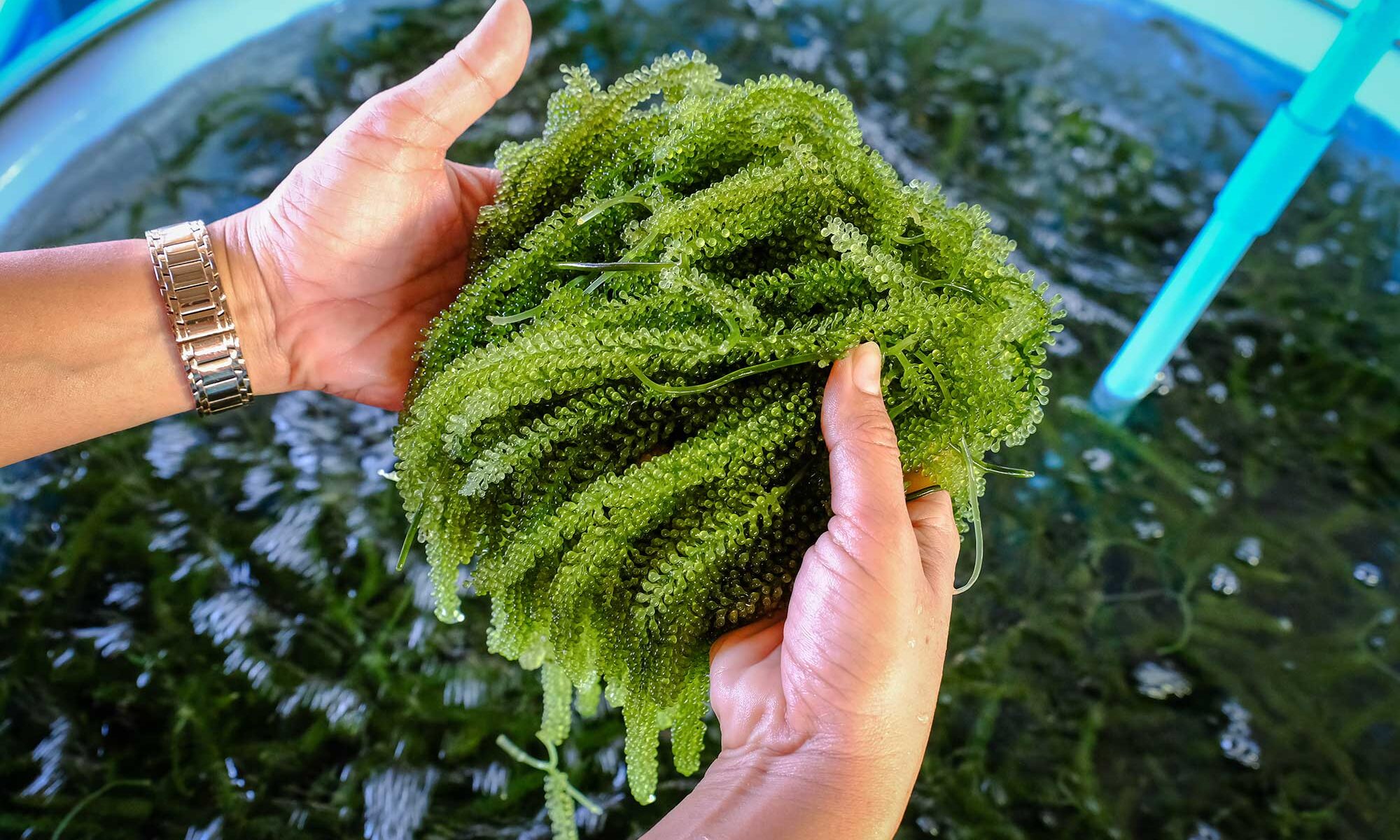Seaweed is a promising but underutilised green feedstock in Europe. It is mainly commercially exploited for food and for the production of phycocolloids (thickening agents). But industrial production is complex and inefficient and also uses acid and alkaline conditions, many chemicals and a lot of water and energy. This generates a considerable amount of waste, as other components are destroyed during the extraction of the phycocolloids. Even some of the phycocolloids themselves are degraded.
Meanwhile, several new extraction techniques have been developed, for instance using ultrasound, microwaves, enzymes, homogenisation and supercritical extraction. These are still in their infancy and also have many drawbacks: they are expensive, have low yields, affect the final product and are difficult to scale up.
Green solvents
In SeaSolv, a more sustainable and cost-effective process will be developed that will allow the seaweed industry to significantly reduce its carbon footprint. The process uses deep eutectic solvents (DES). This new class of sustainable solvents offers many advantages, including low price, low toxicity and often biodegradability. They can be ‘customised’ and are even switchable during a desired process.
DESs therefore represent a potential alternative to conventional organic solvents. They allow various components to be extracted from biomass one by one in a gentle manner, while maintaining the functionality of the end products. The result is a multi-product biorefinery that generates little or no waste and consumes less energy. The technology will eventually also be usable for the extraction of metabolites from other types of land-based and aquatic biomass, such as plants and microalgae.
Partners
The SeaSolv research will be developed in Wageningen University’s Bioprocess Engineering (BPE) group, led by Dr Antoinette Kazbar. Partners in the project also involve industrial companies that are going to put the new techniques into practice: Hortimare from Heerhugowaard (Netherlands), Kelpblue from Zeist (Netherlands), Algaia from Saint-Lô (France) and the University of Aveira (Portugal). The research will been funded by the Open Technology Programme of the Netherlands Organisation for Scientific Research, NWO.
“With this project, we are bridging the gap between fundamental and applied research for industrial use”, said Antoinette Kazbar. “It is also very exciting to me since new it will be the start of my new research line Process Integration and Biomass Valorisation. The main idea is that we need to study the biorefinery process as a whole, from the properties of the biomass to the functionality of the final product. Too much research is concentrating on individual aspects of this process, especially on extraction. Optimising step B in a biorefinery process without considering step A or C will lead to problems.”
“This a good reason to involve industrials. They told us about the issues they face when extracting compounds from seaweed and that they would like to have alternatives. But we as a research group also need to know what is happening at the fundamental level. So it will be a combined project.”
On 5 October 2022, WUR is organising a public mini-symposium, in which the opportunities and challenges for a seaweed biorefinery in the biobased economy will be discussed in detail. See the WUR website for details.
Image: Jakkarin Apikornrat/Shutterstock



